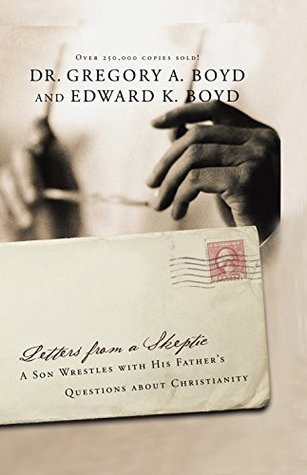More on this book
Community
Kindle Notes & Highlights
Read between
December 26, 2018 - January 7, 2019
Having one’s faith challenged—whatever faith one holds—is always a good thing. If it can’t “stand the fire,” a faith is not worth holding-whether it is Christianity or atheism.
Christianity isn’t a religion or an institution of any sort: It’s a relationship. Within the religion of Christianity there are, and have always been, genuine Christians—people who have a saving and transforming relationship with Jesus Christ. And this fact accounts for the tremendous good Christianity has brought to the world (in spite of the evils). But the “religion” of Christianity, the “institution” of the church, is not itself Christian. Only people, not institutions, can be Christian.
First, I would argue that most of the pain and suffering in the world is the result of evil people, not nature, and that even the pain caused by most natural disasters could be minimized or eliminated if humans were what God created us to be. Take famines, for example. Do you think anyone would ever starve if everyone “loved his neighbor as himself”? I’m told by specialists in the field that there is more than enough food in the world to feed everyone. It’s just that it’s hoarded by a few who already have more than they need, at the expense of those who have less than they need.
Think how much “natural” evil could be prevented if there were no political wars (the Ethiopian tragedy clearly could!), if there were no arms race, if there were an equal distribution of the world’s resources, if humans who had the means cared enough to invest in the safety and welfare of others? Even the floods in Bangladesh, I am told, are largely the indirect result of human apathy about our environment (e.g., screwing up the ozone layer) and about the welfare of the Bangladesh people (e.g., assisting them to build flood-proof housing).
But there yet remains at least some natural evil which doesn’t seem due either to the limitations of the world or to the fact that people aren’t as perfectly loving as they were created to be. Deformed babies, for example, aren’t explained by either of these two explanations. How does a theist respond to these? This leads to my third consideration. If the Bible is correct, Dad, human free wills aren’t the only free wills which have been created. The universe is inhabited by innumerable spiritual free beings as well, beings which are not physical, at least not as we understand physics. I know
...more
This highlight has been truncated due to consecutive passage length restrictions.
We tend to become the decisions we make. The more we choose something, the more we become that something. We are all in the process of solidifying our identities by the decisions we make. With each decision we make, we pick up momentum in the direction of that decision.
The more we choose something, the harder it is to choose otherwise, until we finally are solidified—eternalized—in our decision. The momentum of our character becomes unstoppable. We create our character with our decisions, and our character, in turn, exercises more and more influence on the decisions we make.
You asked about how all of humanity could be so screwed up, and this is why. Evil tends to propagate evil, individually and societally. And this is part of what is meant in Christian theology by “original sin.” The message of Scripture, Dad, is that we are all, individually and collectively, too far down the road to now “make ourselves” what God intended us to be. We can’t, on our own, make ourselves right with God, with each other, and even with ourselves! We need a new start, a new creation, a clean slate. And this, according to the gospel, is what God has given us in Jesus Christ.


